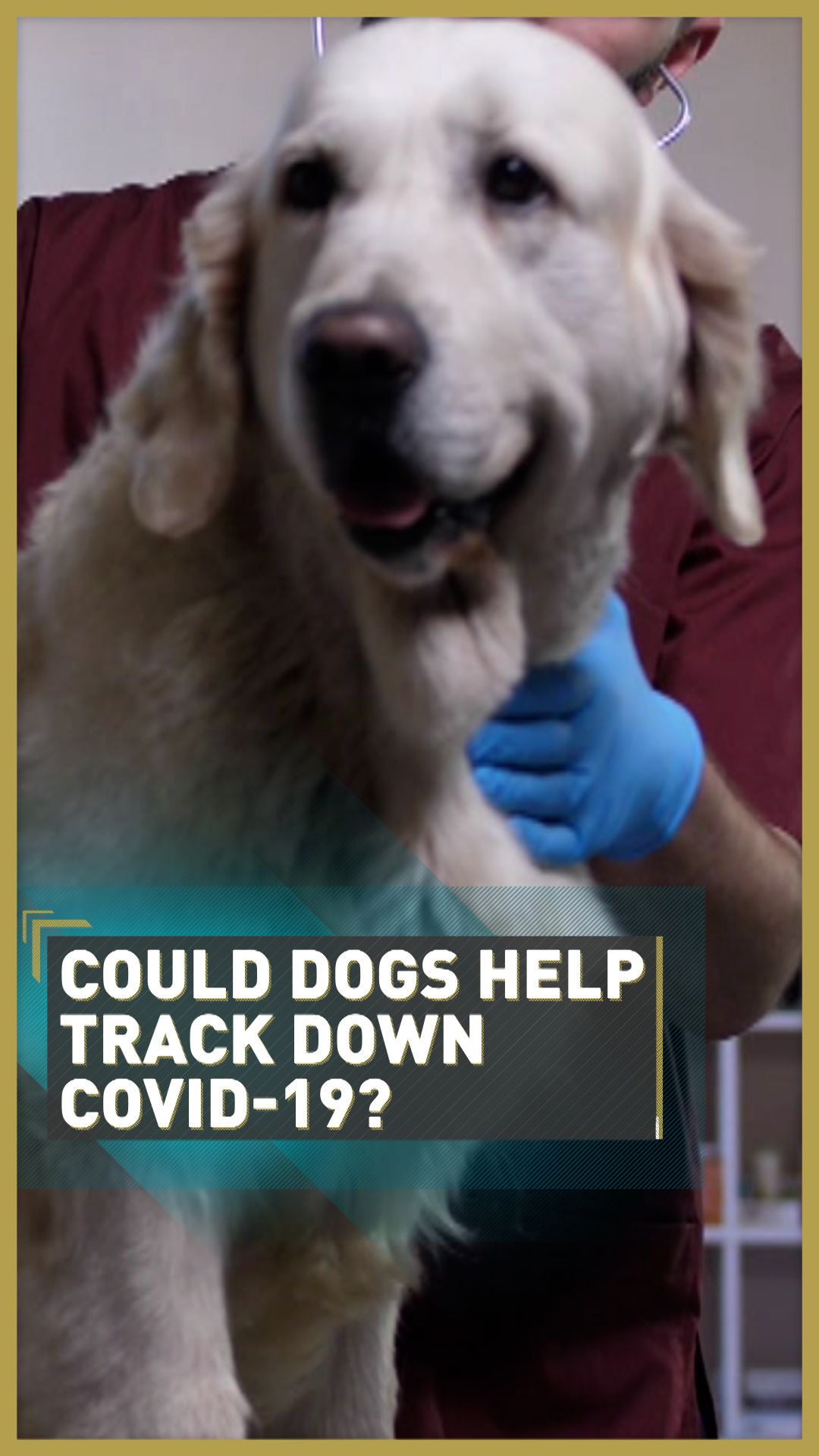Scientists in the UK are looking into whether medical detection dogs might be able to "sniff out" people with COVID-19.
A dog's nose is capable of detecting a great variety of smells that humans can't. Sniffer dogs are already trained to detect illegal drugs, explosives, contraband electronics and even diseases such as cancer, Parkinson's, and malaria.
02:29

Currently, scientists aren't sure whether COVID-19 has a specific odor, but there's a high chance it does.
"We know from other respiratory infections like influenza, for example, that there is a change in [body] odor and it's very likely that COVID-19 would do the same," says James Logan, head of the department of disease control at London School of Hygiene & Tropical Medicine (LSHTM), one of the institutions behind the study.
The research is being conducted by scientists and experts from Durham University, and Medical Detection Dogs, a charity that trains dogs to detect the smell of diseases. To support the research, a crowdfunding has been launched on Indiegogo.
How will it work?
For the purposes of the study, odor samples of patients with confirmed cases of COVID-19 and odor samples of people who are confirmed to not be infected with the virus will be collected.
"Those samples, which would be breath samples and also samples from around the feet, will be presented to the dogs in a safe manner," explains Logan. "And the dogs will be given a reward every time they detect correctly that somebody is infected or somebody is not infected. And the more we do that, the more they begin to associate the reward with getting the answer right, and with the right smell. And if you do that enough times, eventually they'll learn the smell."
The samples, to be collected in the next few weeks, will be used to train six dogs, some of them already pre-trained to detect malaria. After six weeks of intensive training, they could be deployed in ports of entry – public spaces where big crowds gather, airports, train stations. According to the team, the dogs will be able to screen up to 250 people per hour.
Medical Detection Dogs says the study is absolutely safe for the dogs, which won't be exposed to infected people or materials and are observed by a specialist veterinarian epidemiologist. Evidence has also shown that dogs are not susceptible to the virus.

A quick solution to an urgent issue
"The greatest benefit of this method is that it's quick to do – it's quick to train the dogs; and we can screen a lot of people very, very quickly," says Logan.
"So if we can screen 250 people per dog per hour, if you think about how we could scale that up, thinking about reopening airports and other ports of entry, other sorts of transport and sorts of hubs.
"If you get thousands and thousands of people going through these hubs every single day, and if we want to get back to any sort of normality quicker, we need a method that can do that nicely, quickly and screen lots of lots of people, the dogs would be able to offer that."
It will be easier for the dogs to detect the virus if screening lines of individuals, for example in line at border control or passing through the airport gate. According to the scientists, the dogs' detection will be more reliable than temperature checking at the airports, quicker, and less invasive.
It won't replace testing, but it could help national governments struggling to carry out enough tests within the population, as the dogs could provide rapid and fairly accurate screening for the virus.
"Once we demonstrate that [the method] is successful, then we'll be scaling this up and we'll be using potentially military dogs, dogs that are used at airports and police dogs as well," explains Logan.
"There's already a model, you know, within airports, we already have dogs that detect drugs and explosives. And the same in the military and the police. And so, if we can repurpose some of those dogs to do this job, then it will be a lot easier to scale this up. And that's what we intend to do."